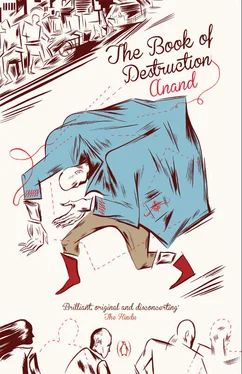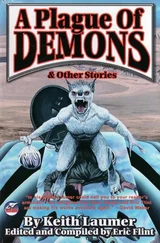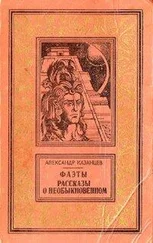Thugs too have a methodology, a very systematic one. Seshadri has found justifications to link it with an ideology. If he clings to that ideology, almost at the peril of his life, it is because he knows that the link is but weak and tenuous. All his attempts to rationalize and philosophize it, his emphasis on the positive aspects of it such as the so-called brotherhood and camaraderie among thugs, only reinforce my point. He draws my attention to the seemingly edifying codes of conduct among thugs — how one thug can always recognize another and would stand by him at all times. How thuggee transcends religious and casteist prejudices. How there are thugs among ministers, bureaucrats, doctors, architects, academicians, intellectuals, historians, writers, dancers, scientists, policemen, industrialists, traders, workers, saints and nomads, and how thuggee is equally sacred to all of them. These facts might be true, but they remain mere codes of conduct or conditions of membership in a cult. I have of course seen how the resident director Chandulal Gandhi and the gardener Seshu met like brothers. In this mythical world of brotherhood, just as in the ideological cementing among revolutionaries, every kind of moral consideration evaporates. The brotherhood he so proudly proclaims is actually a brotherhood between the members of a cult and it does not spill over into any relationship between a thug and a non-thug. The whole of mankind is divided into two sections, namely thugs and non-thugs, us and them. All thugs, burying their differences of position, profession, trade, caste and religion, unite as one against the ‘other’—the non-thugs or bunijs. No different from the way followers of one faith, ideology or political party organize against those outside it.
It must be loaded with such thinking, with a conviction stronger than that of the nomad, and an authority more powerful than that of the revolutionary that Seshadri proclaims himself a keeper of the future. He claims that he is only liberating his victims in a manner a nomad would never profess and a revolutionary would always aspire to. He derides writers as the ones revelling in the past and the present. He believes he stands upon a much higher plane than them as a devotee of the future. But he distances himself from the revolutionaries on grounds of ideology and the politics of the future. He holds that all living beings are inevitably headed for destruction; in the end all will return to the basic elements and so destruction is the truth of the future. When an event takes place on this earth (in his definition, an event occurs only in the act of destruction), a page is torn off from his book and we are brought that much closer to the last page or the conclusion. He invites me to be a reader of this book, this Book of Destruction . If the chill sent by his revelation that I had been his marked victim came upon me like lightning, the chill that ran down my spine upon this invitation did not vanish like lightning. He had not designed it to vanish. As a writer, he has allotted to me the role of a masticator of the past. My status as a prey was also consigned to the past, with his death. But here he was, inviting me to the future, in the company of thugs, sharing their concerns and anxieties of today. He keeps returning to the equation of a dead thug and a living victim. The logic behind his invitation is perhaps the fact that I was the victim of a thug, if not a thug myself. Just as the victim of a vampire joins the vampire’s creed. The fact that I was not killed and buried does not seem to bother him. Perhaps that is the attraction, that instead of dead and buried, he finally has a victim with whom he can communicate, even if from the other side of death.
I am expected to read The Book of Destruction —if it really exists and is not a metaphor — keeping his anxieties and apprehensions in mind. I am supposed to take them over and carry them forward.
His first anxiety is that the present-day killings, though adhering to the basic principles of thuggee, exhibit certain deviations from its methodology. He takes pleasure in the fact that violence is becoming widespread in the contemporary world. It also gives him great satisfaction that the modern assassins are able to avoid emotional involvement and strike victims with whom they have no personal enmity, that innocent people are being targeted with no consideration of creed, colour or class. All these mark the purity and the sacred character of the killings. It troubles him, however, that these assassins are leaving behind the traditional methods of killing. That these modern assassins do not hesitate to spill blood. Why do they not care to bury the bodies and, worst of all, unlike the thugs, why do they come out into the open and claim responsibility for the killings? He is puzzled: can this be called thuggee, are these assassins real thugs?
The Book of Destruction is silent on these themes. Revelations and omens of the Devi are not forthcoming. After watching the developments of the past half-century, Seshadri concludes that mankind has finally come to realize and accept the necessity of destruction, thus rendering the vow of secrecy redundant.
I am not obliged to find answers to Seshadri’s questions. But he had raised a storm in my mind that would not die down. His confessions in the classic style, reasoning in the renaissance air, justifications using rationalist armoury, idealistic statements on brotherhood and honesty of purpose, attacks in the guise of a modernist-progressive on my dishonesties and invoking my responsibilities as a writer, and the final, sudden leap into the postmodernist environs to initiate a hunter — prey discussion on the methods of hunting plagued me. As if the ultimate role of the prey is to start a consultancy for the hunter! Hadn’t the Spanish Inquisitor General Torquemada said that if an innocent victim was wrongly sentenced to burn on the stake, he should accept his fate with resignation and rejoice in sacrificing his life in the cause of truth?
In the midst of all these absurdities, Seshadri had, in the final part of his letter, sowed seeds that now refused to die. Does the re-emergence of indiscriminate killing in a wider and more effective manner — about which he did not bother to hide his joy — also mean the addition of a new dimension to thuggee, he wondered. He observed that killing has left behind remote battlefields and entered our streets, marketplaces, offices and even our backyards. It is becoming endemic to our daily lives, unlike the infrequent battles of the past. Machine guns, bombs, mines and booby traps have cut the action time to almost zero compared even with the few seconds of struggle during strangulation. He celebrates the near mundaneness of killing, so common now in the fields of politics, cultural and ethnic conflicts, industry, trade, strikes and revolutions. He acknowledges the charge of cowardice associated with their age-old methods of lies and deception and rejoices at the new transparency of methodology and the acceptance of it by society. But while taunting us about our complacency at the pollutants being introduced into our air, water and food, he prefers to ignore the extent of cooperation, or rather the lack of cooperation, which the victims extend to the whole process. While he is vociferous about the reprehensible celebration of lies and deception in the field of literature, he fails to notice the spread of this phenomenon into our daily lives, albeit without its poetical beauty. Of writers becoming copywriters for selling wares in the market and ideas in politics. The irony of catchwords and punchlines coined by the copywriters becoming pieces of literature. The sheer mockery in advertisements acquiring the status of art.
Whether formalized by Sleeman or someone else, the methodology of thuggee is gaining popularity. Ramaseeana , his compilation of the code words and phrases used by the thugs, is becoming a dictionary of all languages.
Читать дальше











